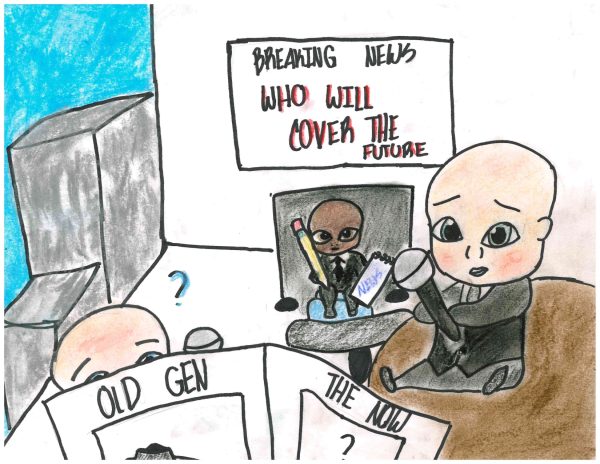Stop blaming teens for the labor shortage, it’s not our fault
As a long result of the pandemic, many businesses, both small and large are facing labor shortages. Many adults look to blame teens for not working while in reality, teens are working more now than before the pandemic.
In the height of one of the worst labor shortages, many are quick to blame teens as the cause, however, teen employment is up the highest it’s been since 2008.
According to the bureau of labor statistics, more than 32% of teens were employed this summer, which is the highest they’ve seen in years.
While more jobs are being created as the world opens back up, teenagers are filling the void while many are continuing to ride off of their unemployment benefits- which are not available to teens and students.
There are currently 9.3 million open jobs according to NBC, which are leaving restaurants and stores very short-staffed leaving them no choice but to hire who is applying and showing up to interview: teenagers.
For the first time in history, the unemployment rate for teens aged 16-19 fell below that of workers aged 20 to 24, according to figures from the Department of Labor.
Teens want to be able to work and get money for gas and experiences after being locked in their houses for the past 19 months, so they’re working because they have the availability and their willingness to take jobs that many adults aren’t rushing into right now.
According to U.S. Labor Secretary Marty Walsh, there are three main reasons why we are facing a labor shortage; 1) we are living in unprecedented times, 2) fears over health, and 3) people are rethinking life and work.
“I think a lot of people are re-imagining or rethinking about what’s next for them,” Walsh said, “I’ve talked to a lot of businesses that have said some people have decided to walk away from the industry they’re working in, and they’re thinking about what’s next for them.”
This is leading to what experts are calling “The Great Resignation” as many are still in search of their new identity after being abruptly laid off or furloughed at the beginning of the pandemic.
The added stress of the likeliness of coming into contact with death or illness in a hospitality or customer service job is also causing millennials and adults to step back and evaluate their happiness.
Because of these reasons, flexibility in a job is what is a priority to many adults when searching for a new career. Flexibility, however, is not something that a job at a restaurant or department store can provide.
So income teenagers, working and picking up the shifts and jobs that adults no longer feel are the best suited for them. While many teens do enjoy the extra spending money, the added hours and workload can have a negative impact on their wellbeing too.
Working five days a week, while going to school, doing homework, participating in extracurriculars or sports, and trying to manage a social life can be way too much for 14-18-year-olds to handle.
Teens are trying their best to help support businesses that are short-staffed by doing what they can, some even worked two or three jobs over the summer.
However, with the amount of work that is needed, it is not fair to place the entirety of the blame on teens with all the other expectations already on them.
We all need to be patient and empathetic with businesses while we let adults figure out what they are doing with their lives and let teens learn their limits and work in ways that we are not adding another mental burden.





